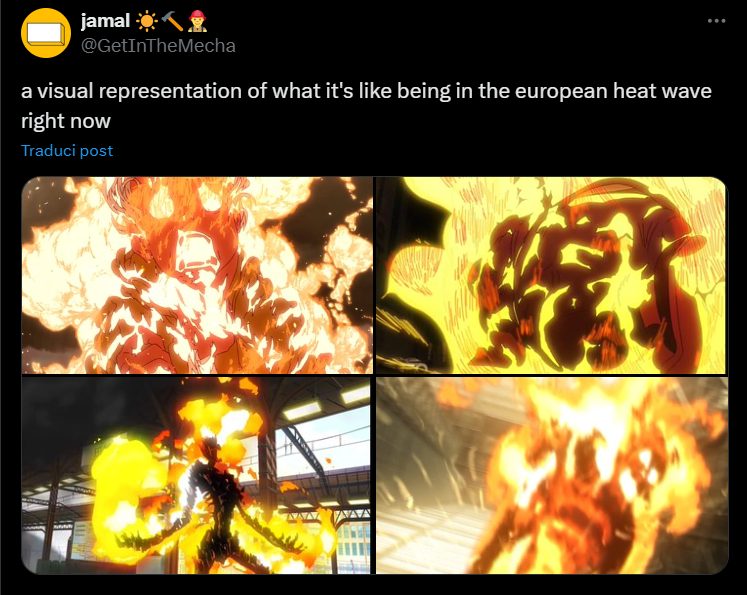Le storie, le interviste, i personaggi del nuovo numero di Rivista Studio.
La lettera d’amore di Glenn Beck ai Muse

Glenn Beck è un giornalista, ex volto di Fox News, noto per le sue posizioni ultra conservatrici che lo hanno reso uno degli esponenti di spicco del movimento Tea Party. Negli ultimi anni ha scatenato parecchie polemiche con le sue feroci critiche all’amministrazione Obama. Ma se il 44esimo presidente degli States non è affatto nelle sue corde, è risaputa la sua passione per i Muse, gruppo rock inglese dal gusto barocco e la predilizione per testi politici in cui si intravedono teorie cospiratorie, regimi succhia-cervello e popoli alla ricerca della libertà. Ovvero, secondo l’interpretazione di Beck, il programma dei Tea Party trasformato in musica e una chiamata alle armi per una rivoluzione negli Usa.
Un fan particolarmente ingombrante per la band, che prima ha chiesto a Beck di ritirare il suo imbarazzante endorsement, e poi ha preso le distanze dall’ex giornalista con un intervista all’Observer in cui il leader della band Matthew Bellamy ha criticato quella parte della destra Usa che utilizza i loro testi per criticare Obama. Ma la passione di Beck per il gruppo è più forte delle critiche del gruppo, così dopo aver letto l’ultimo scambio di battute, il giornalista ha preso carta, calamaio e penna e ha scritto una lettera a Bellamy, che Spin ha pubblicato in esclusiva. Nella missiva, da non perdere (la trovate in lingua originale a fondo pagina), Beck dice che nonostante tutto continuerà ad ascoltare a palla le canzoni dei Muse e si spinge oltre, con ironia, accennando a una vicinanza politica tra lui, un Tea Party e una rock band di simpatie di sinistra: «In un diagramma di Venn della politica,» si legge nella sua lettera, «dove il rosso e il blu si incontrano, c’è un posto dove io e te ci incontriamo. Un posto dove i ragazzi che si aggrappano alla loro religione, i loro diritti e pistole entrano in contatto con persone senza dio (…)».
Il testo integrale della lettera
Dear Matthew,
I read your comments in the Guardian via Rolling Stone last week and feel like with a little work we could better understand each other.
As uncomfortable as it might be for you, I will still play your songs loudly. To me your songs are anthems that beg for choruses of unity and pose the fundamental question facing the world today – can man rule himself?
In the Venn Diagram of American politics, where the circles of crimson and blue overlap, there’s a place where you and I meet. It’s a place where guys who cling to their religion, rights, and guns, connect with godless, clinched-fist-tattoo, guys.
You seem to have a pretty good grasp of comparative U.S. and European politics, but maybe there’s a pattern that you’re underestimating. Throughout history, leaders have used music to lull young people into a sense of security and euphoria. They’ve used artists to create the illusion that they can run a country that keeps all the good and wipes out all the bad. Think Zurich 1916. Think artists getting behind guys like Lenin and Trotsky. Think of pop culture’s role in the Arab Spring. The youth rises up, power structures crumble, and worse leaders are inserted.
America, on the other hand, does not rely on leaders — we rely on the individual. Our country was built on the principles of mercy, justice, and charity — we ultimately believe that man left alone is good. That is a primary reason I disagree with Chomsky and others that you’ve touted.
American Libertarians understand that smaller government gives people freedom — the freedom to earn or lose, eat or starve, own or sell. The potential for wild success and happiness is tempered by an equal chance of failure. And it is all up to the individual to take control of their destiny.
This has been a debate since the founding of America, one that has often gotten confused. Even during the revolution — a period filled with the greatest minds to ever discuss the idea of freedom — there were the divisions that continue today. Robespierre or George Washington. OWS or the TEA Party.
Thomas Paine didn’t see the difference at first either — sometimes the difference is too subtle.
Yet the question is an easy one: Do you believe man can rule himself? Or does he need someone ruling over him to force him to be good and charitable?
That is the fundamental divide and everything else follows. Even though faith was important to our American patriots none of them forced Paine to believe. He chose his course and in the end is remembered as a critical patriot in establishing man’s first real freedom.
They understood that we don’t all have to be in the same boat. But rather, focused on the star chart: Are you headed toward freedom or despotism?
The power that American Libertarians like me want to pull down is power that limits the individuals right to roam and create.
Matthew, I realize that converts are pretty hard to come by when the stakes are so high and the spotlight so bright, but I thank you for singing words that resonate with man in his struggle to be free.
I wish I could leave well enough alone and just be quiet…
…but I’ve had recurring nightmares that I was loved for who I am and missed the opportunity to be a better man.
Good luck on the new record.
Glenn
(via A.V. Club)
(Immagine: Alex Wong/Getty Images)
Come funziona Jigsaw, la divisione (poco conosciuta) di Google che sta cercando di mettere la potenza di calcolo digitale del motore di ricerca al servizio della democrazia, contro disinformazione, manipolazioni elettorali, radicalizzazioni e abusi.

Reportage dalla "capitale del sud" dell'Ucraina, città in cui la guerra ha imposto un dibattito difficile e conflittuale sul passato del Paese, tra il desiderio di liberarsi dai segni dell'imperialismo russo e la paura di abbandonare così una parte della propria storia.



